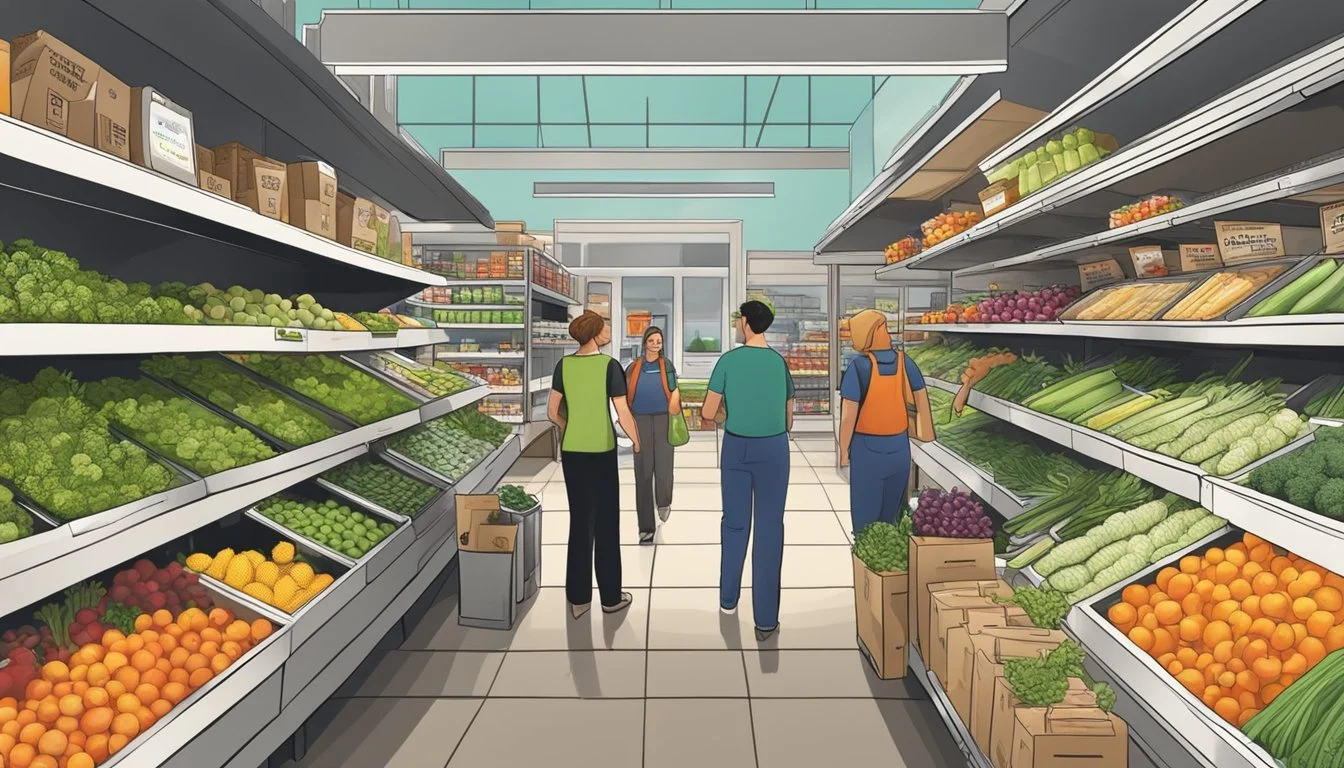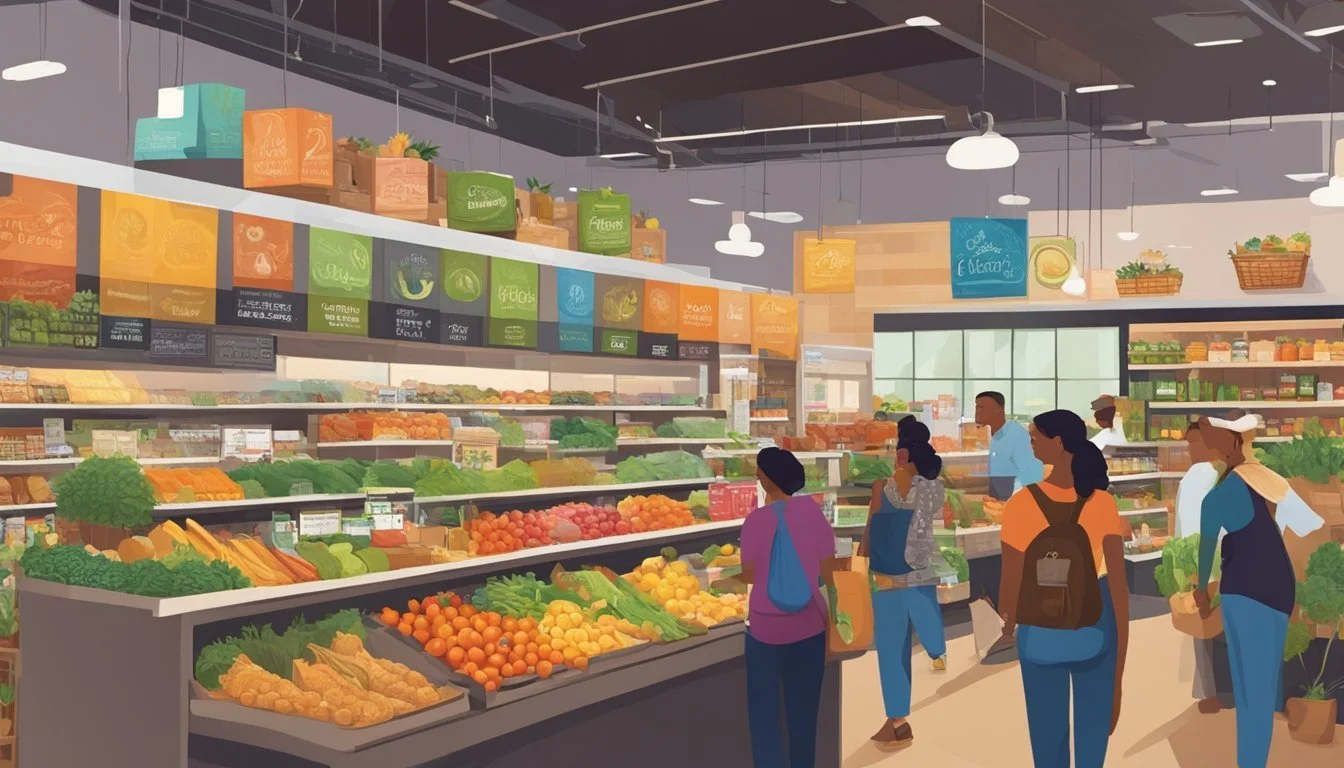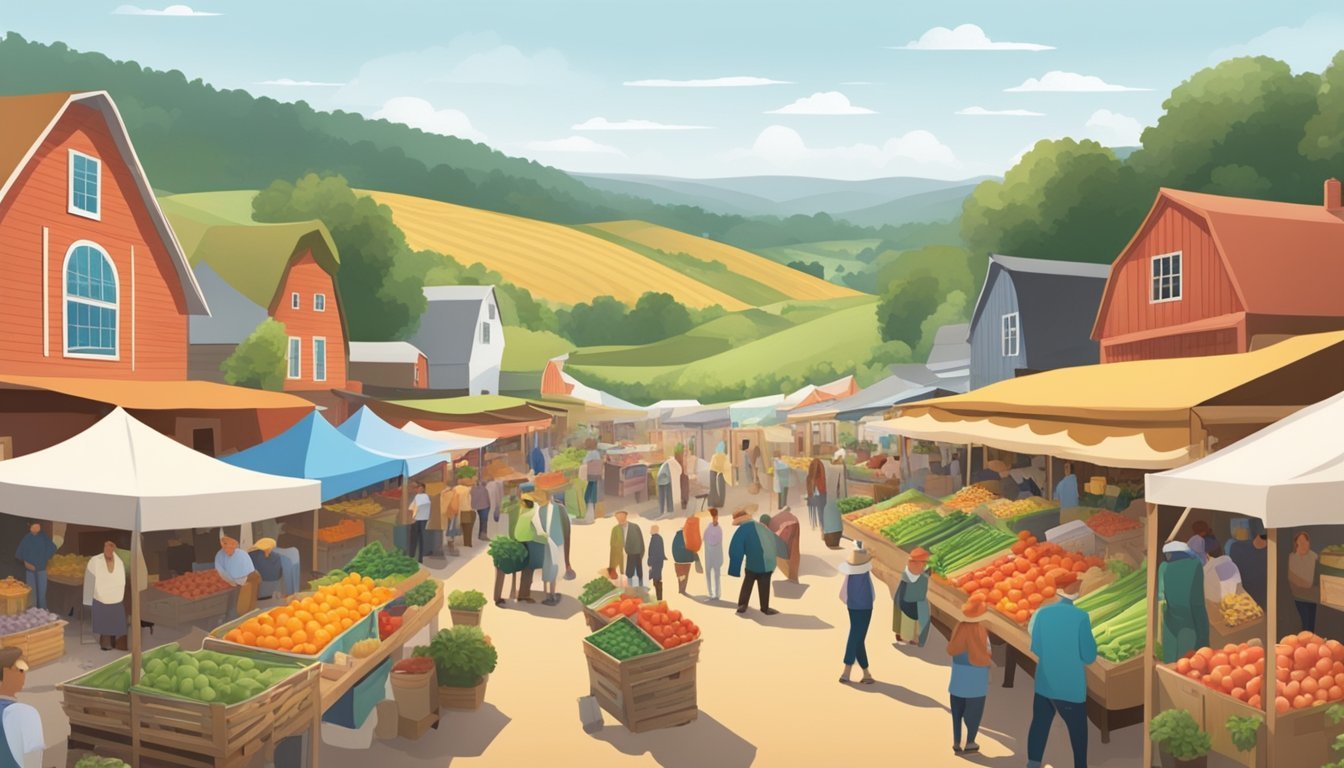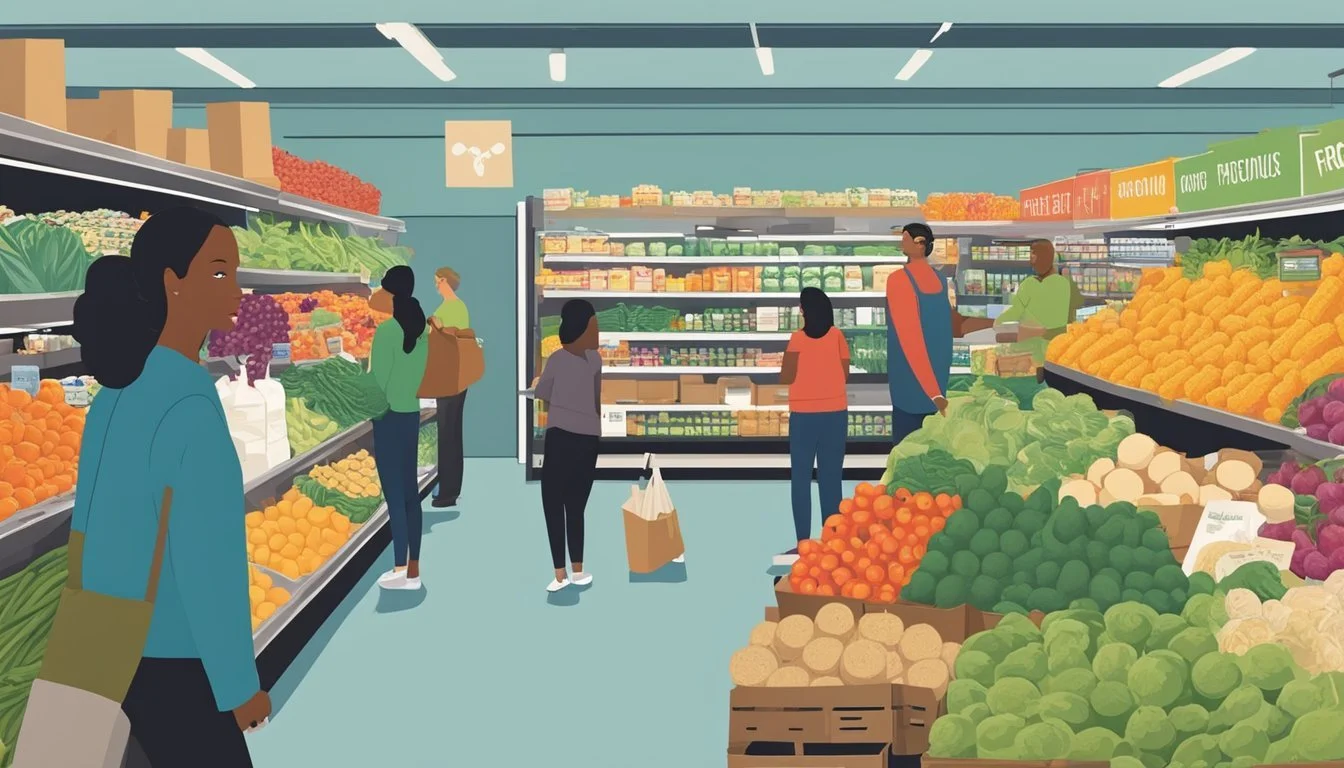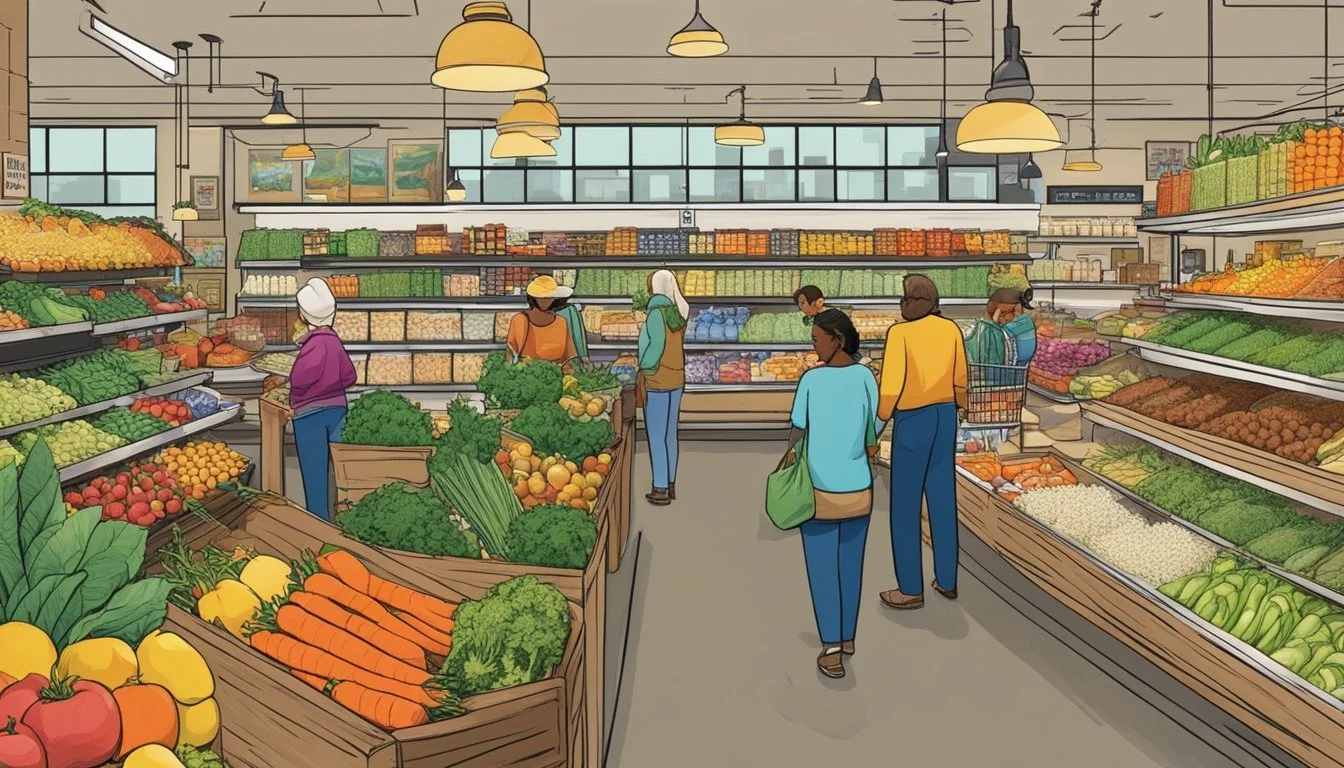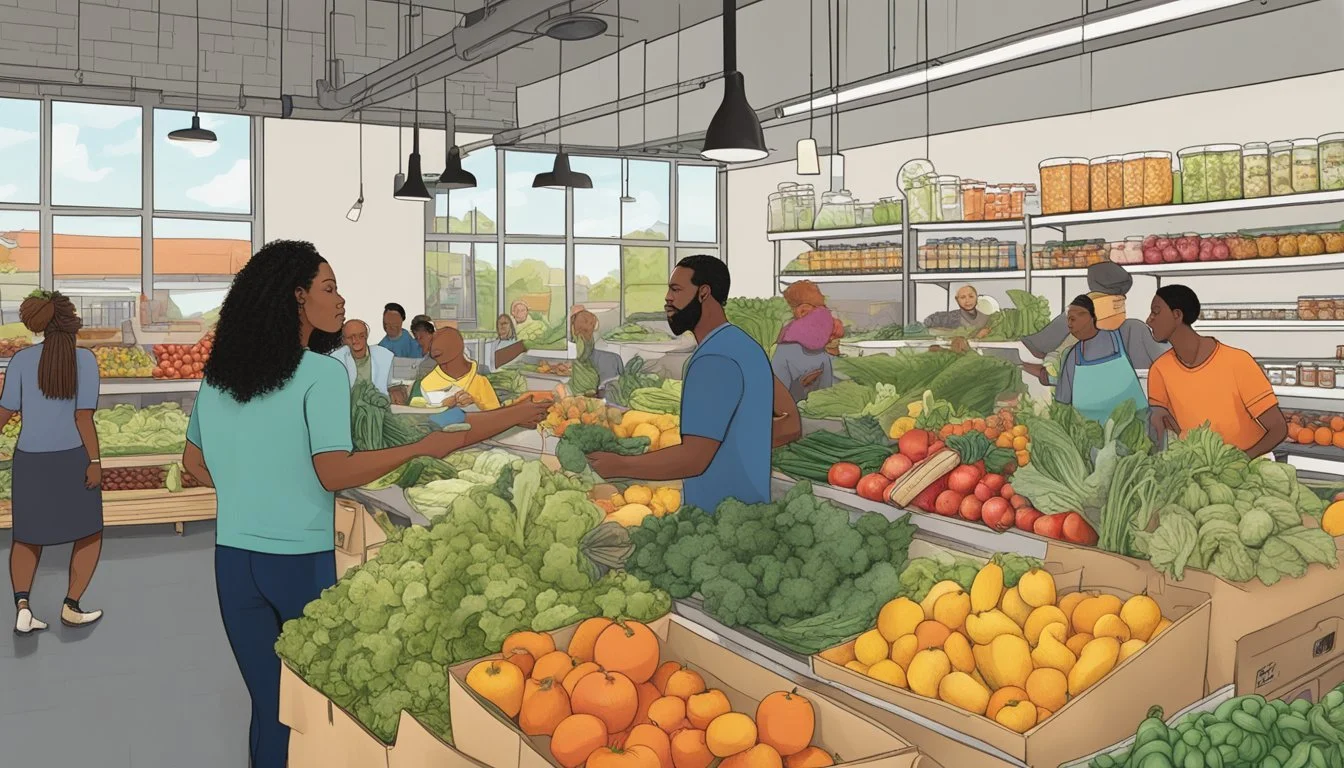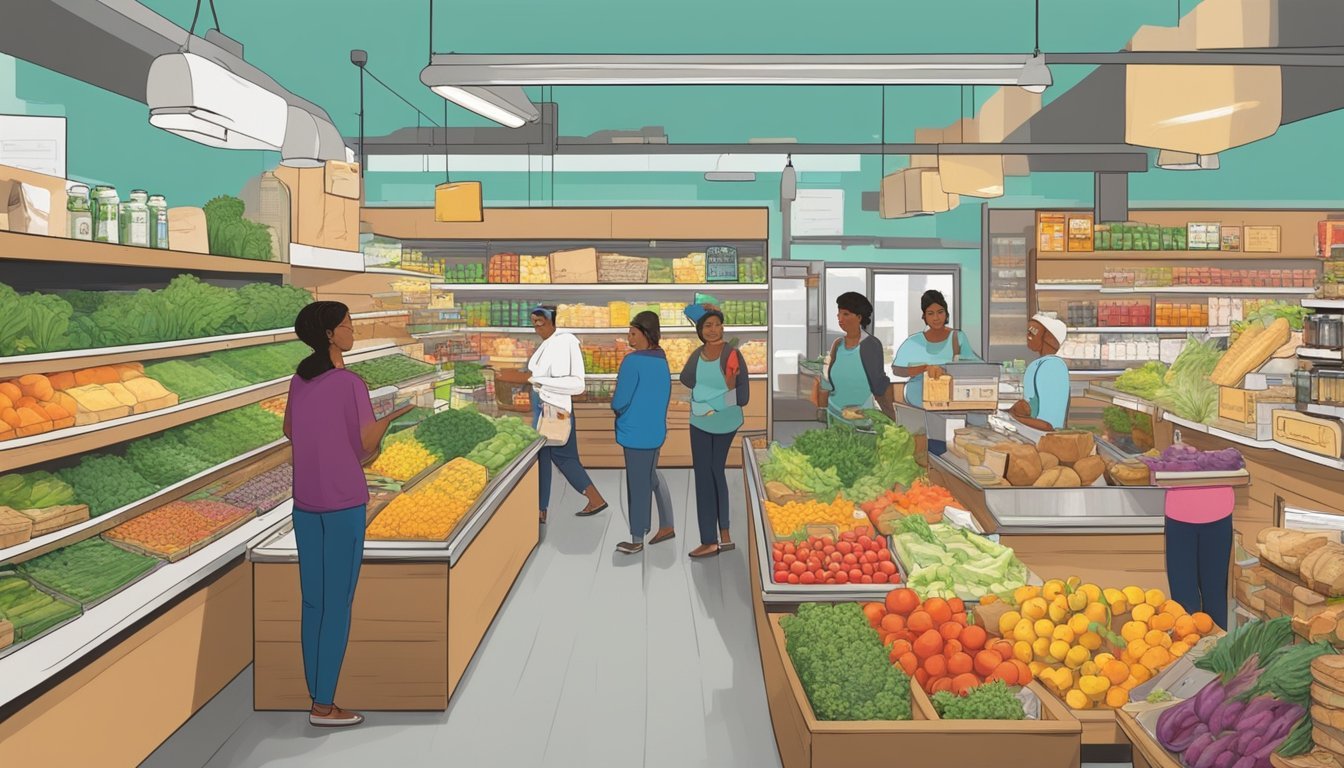Guide to Food Co-Ops in Kansas City, MO
Your Access to Local, Fresh Produce
Kansas City, MO, boasts a vibrant network of food co-ops and community initiatives aimed at providing access to fresh, locally sourced groceries. These co-operatives work under a member-owned and governed model, adhering to principles that balance profit with the need for healthy, affordable food. They serve as a testament to the region's commitment to sustainable agriculture and food justice.
At the heart of this network is the long-standing dedication to community well-being and support for local producers. Food co-ops like The Merc Co+op exemplify this dedication, with a focus on offering local foods and products as a central aspect of their operation for over four decades. By supplying a wide array of locally produced goods, these co-operatives not only cater to the nutritional needs of members but also contribute to the local economy and foster a more resilient food system.
The Kansas City Food Hub is a particularly noteworthy collaboration where local farmers unite to supply a diverse range of fresh produce to the metro area. This farmer-run cooperative wholesaler and retailer paves the way for integrating locally grown food into the Kansas City market, ensuring that residents gain access to fresh, seasonal selections while supporting Missouri's agricultural community.
What is a Food Co-op?
A food co-op is a grocery store model where ownership and decision-making are shared among members. Typically, these members are local community residents who wish to have a say in their food source and store operations.
History and Philosophy of Co-ops
The cooperative movement has historical roots in the quest for democratic and member-controlled business models. Food co-ops emerged as a way for communities to trust in, and have access to, high-quality food sourced ethically and sustainably. They typically operate on principles that prioritize mutual benefit and democracy, ensuring that membership entails both a stake in the enterprise and a voice in its governance.
Benefits of Co-op Membership
Membership in a food co-op provides a plethora of benefits. Members often have control over the products that the co-op carries, enjoy trust in the sourcing of food, and sometimes share in financial profits. A co-op member is part of a democratic entity where each member typically has one vote, fostering an environment of democracy and equality. These benefits extend to the broader focus on supporting local producers and suppliers, strengthening the community's economy, and prioritizing the well-being of community members.
Finding Food Co-ops in Kansas City
Kansas City residents have several options for food co-ops that offer a range of services, including access to fresh produce, meat, cheese, and bakery items, often emphasizing organic and natural food selections.
Directory of Kansas City Food Co-ops
Happy Valley Farm: Located in De Soto, KS, just outside Kansas City, this farm offers a variety of locally sourced products.
The Merc Co+op: A community-owned grocery store with locations in Lawrence and Kansas City, providing organic and natural foods.
Other local options are available through farmers markets and smaller food co-ops that specialize in organic and locally-sourced products.
Comparing Co-ops: Services and Products
Services:
Many Kansas City food co-ops offer educational resources to inform consumers about healthy eating and sustainable agriculture.
Co-ops typically support local communities and provide member control in the business.
Products:
Fresh Produce: Co-ops prioritize offering fresh fruits and vegetables, often sourced from local farms.
Meat and Cheese: Quality and origin are significant factors, with many co-ops providing locally raised meat and artisanal cheeses.
Bakery: Fresh, often organic and natural baked goods are available at various co-ops.
Grocery Store Items: Beyond specialty products, co-ops function as full-service grocery stores with a broad selection of items.
The Role of Local Farms and Producers
Local farms and producers are crucial in supplying fresh, quality produce to food co-ops in Kansas City, MO, and they play an essential role in maintaining the vibrancy of the local food system and supporting sustainable agriculture.
Seasonal Availability of Produce
Kansas City's food co-ops rely on local farms to provide a diverse array of fruits and vegetables. These producers map out the growing seasons to ensure a steady supply of fresh produce to co-op members. For instance:
Spring: Local farms may supply spinach, lettuce, and radishes.
Summer: Tomatoes, peppers, and berries become prevalent.
Fall: Harvests include pumpkins, squashes, and apples.
Winter: While options are limited, some farmers offer greenhouse-grown produce or root vegetables like carrots and potatoes.
This seasonal rotation supports the local food culture and ensures that consumers have access to fresh, locally-sourced produce throughout the year.
Supporting Sustainable Agriculture
Local farmers in Kansas City are at the forefront of implementing sustainable agricultural practices. They maintain soil health, conserve water, and promote biodiversity, which aligns with the principles of many food co-ops in the region. Farmers may employ methods such as:
Crop Rotation: Sustaining long-term soil health by varying the types of crops grown in each field.
Integrated Pest Management (IPM): Using ecological approaches to manage pests with fewer chemicals.
Organic Practices: Some local farms avoid synthetic fertilizers and pesticides entirely, focusing on organic certification.
In addition to vegetables and fruit, these agricultural practices extend to the production of eggs and honey. By choosing local farms that adhere to sustainable methods, food co-ops in Kansas City support more than just the local economy; they champion a healthier planet and foster a stronger connection between consumers and their food sources.
Membership and Participation
Food co-ops in Kansas City, MO, offer residents a chance to become part of a dynamic community focused on sustainable living and responsible commerce. Membership often includes a variety of benefits ranging from product discounts to a say in the business operations.
How to Become a Member
To become a member of a Kansas City food co-op, an individual typically purchases a share or pays a fee, effectively becoming a part-owner of the co-op. This investment grants the member access to:
Discounts on high-quality, local produce
Voting rights in important co-op decisions
Special events and educational opportunities
Prospective members should contact the co-op directly, as each one might have its distinct processes and requirements for membership.
Volunteer Opportunities and Benefits
Volunteering at a food co-op is a rewarding way to engage with the community and can offer numerous benefits. Volunteers may:
Gain valuable experience in various aspects of retail and agriculture
Receive discounts or incentive programs as appreciation for their time
Develop a deeper connection with the local food system
Anyone interested in volunteer opportunities should reach out to their local co-op to learn about available positions and how their contribution will be recognized within the cooperative.
Education and Community Engagement
Food co-ops in Kansas City, MO, actively foster education and deepen community ties through various initiatives. These efforts aim to empower local communities with knowledge about sustainable food practices and create opportunities for engagement through events and resources that are readily available to community members.
Workshops and Classes
Local food co-ops frequently host workshops and classes that cover a range of topics including organic gardening, nutrition, food preservation, and cooking with seasonal produce. These educational sessions are designed to equip participants with practical skills and are often led by experienced individuals in the field of sustainable food systems. Not only do attendees leave with actionable knowledge, but they also benefit from the sense of community forged through shared learning experiences.
Community Events and Outreach
Community events and outreach are central to the ethos of food co-ops, serving as a platform for local producers and consumers to connect. These events, ranging from farmer's markets to food festivals, not only stimulate local economies but also highlight the importance of access to healthy and locally-sourced food. Furthermore, outreach initiatives often include partnerships with schools and community centers, aiming to bring nutrition education and resources directly to those who benefit most from them, thus reinforcing the co-op’s commitment to community welfare and involvement.
Shopping at Food Co-ops
Food Co-ops in Kansas City offer a unique shopping experience focused on providing healthy, affordable food in a community-minded space. They often feature a variety of bulk items and locally sourced products.
Navigating the Food Co-op Layout
Shoppers at Food Co-ops will find that the layout is designed to support local producers and sustainable practices. The grocery store section is usually filled with healthy food options, including gluten-free products. Patrons may notice that the produce is prominently displayed, often showcasing locally grown, organic fruits and vegetables. The deli counter offers freshly-prepared foods, and may cater to special dietary needs with gluten-free options. Clear signs and helpful staff guide shoppers through the diverse sections, creating a welcoming environment for all.
Bulk Buying and Reducing Waste
To support eco-friendly practices, Food Co-ops in Kansas City encourage bulk buying. Shoppers can bring their own glass jars or containers to purchase a variety of items from grains to cleaning supplies. This not only helps reduce waste but can also be more affordable, as customers buy exactly the amount they need.
Bulk Foods: Grains, cereals, nuts, spices
Liquid Bulk: Oils, vinegars, honey
Non-Food Bulk: Cleaning supplies, laundry detergent
Food Co-ops offer scales to weigh containers and clear labeling of products, making it easy to calculate prices. Shoppers enjoy the satisfaction of minimizing their environmental impact while accessing high-quality, reasonably priced goods.
Economic Impact and Community
Food co-ops in Kansas City, Missouri, have a distinct role in shaping both the economy and the fabric of the community. They not only promote local produce and products but also sustain the local economy while upholding their independence.
Economic Benefits to the Local Community
Food co-operatives contribute significantly to the Missouri economy by supporting local family farms and businesses. By prioritizing local food, they ensure that more dollars remain within the community.
Revenue Circulation: A notable example of this is the evident higher percentage of organic produce sales at food co-ops compared to conventional grocers, ensuring that a greater share of revenue circulates among local participants.
Job Creation: They create jobs with fair wages and invest in community growth, fostering economic resilience.
Support for Family Farms: These co-ops often buy directly from Missouri family farms, which can lead to longer-term economic stability for these small-scale producers.
Maintaining Independence and Integrity
Kansas City food co-ops maintain their independence and integrity through a business model that is:
Member-Supported: By being accountable to their members rather than external shareholders, they maintain an independent stance, prioritizing community needs.
Ethical Sourcing: They operate with a commitment to ethical sourcing, ensuring that local farms and producers are treated fairly and that the food's integrity is upheld.
Kansas City's food co-ops are a testament to the way United States communities can sustain themselves while strengthening local connections and economies.
Challenges and Future of Food Co-ops
Food co-operatives face a multifaceted landscape filled with unique challenges and opportunities for innovation. Kansas City co-ops are working both to navigate these difficulties and to harness recent trends to ensure their long-term viability and impact on the local food economy.
Overcoming Common Challenges
Operational Costs:
Budgeting: Co-ops must balance the allocation of funds to cover operational costs while maintaining competitive pricing for consumers.
Affordability: Keeping products affordable, especially organic and locally-sourced items, presents a significant challenge.
Membership and Growth
Engagement: Persistent efforts are required to grow membership bases and sustain active participation within the co-op community.
Convenience: Ensuring geographical accessibility and ease of shopping is crucial to staying relevant amidst conventional grocery options.
Innovations and Trends in Co-ops
Technological Integration:
Co-ops are leveraging technology to streamline operations and provide more convenient shopping experiences through online ordering and inventory management systems.
Sustainability Focus:
Eco-conscious practices are being adopted, like reducing waste and embracing environmentally regenerative methods.
Community Involvement:
Co-ops strengthen local economies and support food justice by creating partnerships with local producers and community organizations.
The future of food co-operatives in Kansas City hinges on their ability to adapt to these evolving challenges and trends, ensuring they continue to serve their communities effectively.
Conclusion
Kansas City, MO, presents a growing landscape for community-focused shopping, particularly through the development and operation of food co-ops. These cooperatives are not merely stores but social enterprises aimed at meeting local needs. They are democratically governed, with a board of directors usually elected from amongst the members, ensuring that the community's voice helps guide decisions.
The impact of these food co-ops extends beyond providing access to fresh, local, and organic produce. They stand as pillars in the fight against food insecurity, supporting local economies and farmers. Kansas City residents benefit from the co-ops' commitment to education and sustainability, making informed choices about their food sources.
As cooperative models gain momentum, northeast Kansas City has taken notable strides with projects like Northeast Grocers. Residents recognize the value in having a grocery store after decades without one, underscoring the co-op's role as an essential service rather than a luxury.
In summary, food co-ops in Kansas City function as more than alternative grocery stores. They foster a culture of community and mutual support, underpinned by the dedication of their board of directors and members. For anyone in Kansas City, participating in a food co-op is both a step toward personal health and a stride toward collective well-being.

